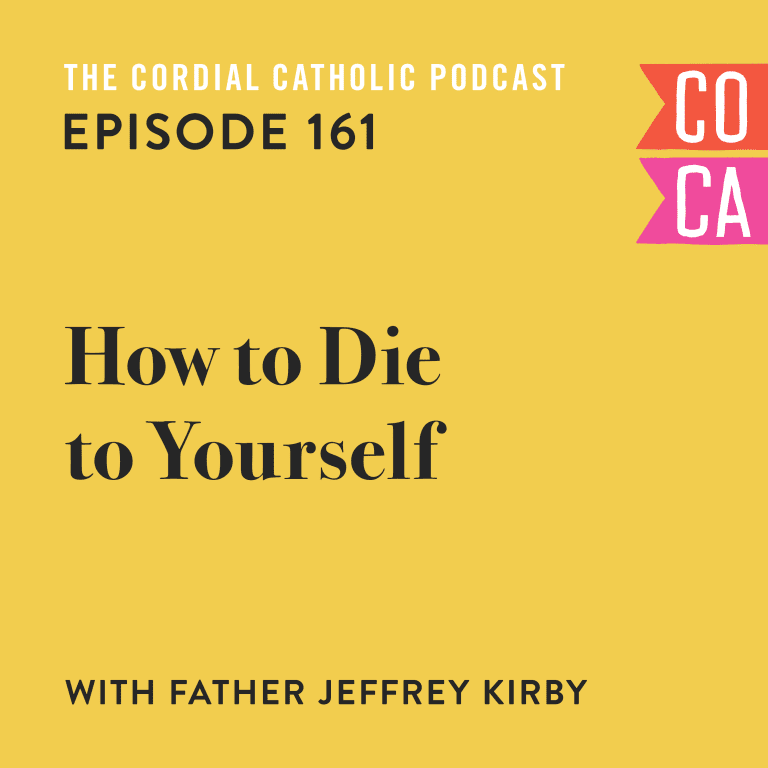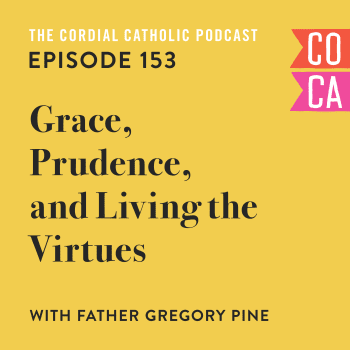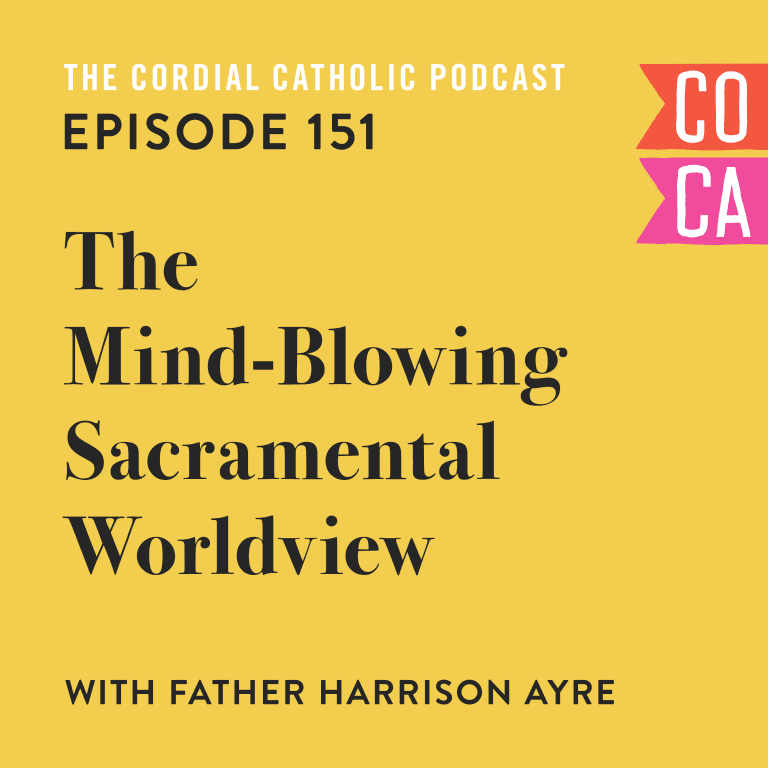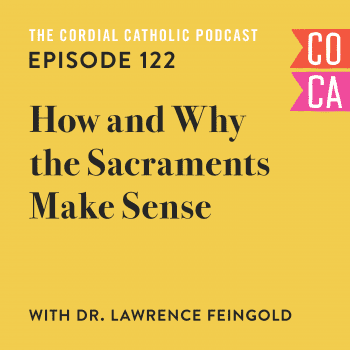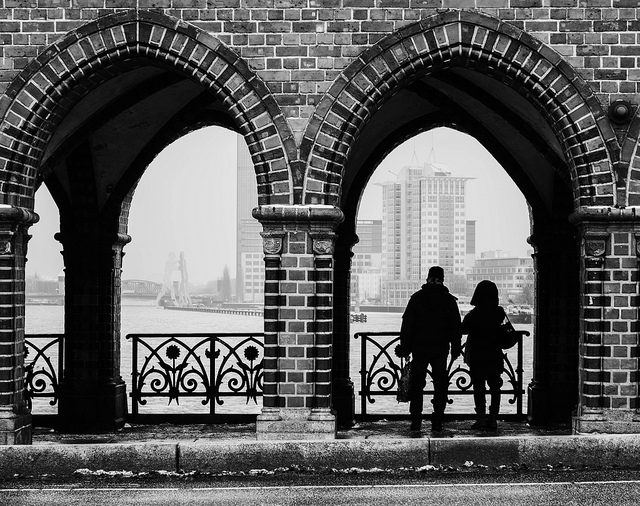
Before getting married, my wife and I had a number of marriage preparation sessions with our pastor. We talked about what to expect in marriage. How our family backgrounds, our upbringings, might affect how we relate and, later in our marriage, how we would parent our kids. We discussed a number of our expectations, fears, and hopes as we began a new stage of life together.
And there was one question, in particular, that I’ll never forget.
The question from our pastor was, “Do you think your love for each other will grow, or decrease over time?”
I was too quick out of the gate, which was definitely the wrong move.
“It’ll decrease,” I said, “We’ll never be more in love than we are now, starting out life together, all starry-eyed and excited.”
My wife’s beautiful blue eyes thinned, her lips pursed together, and I knew I’d given the wrong answer.
But hear me out.
We’d be in love—very much in love—but then we’d settle into our patterns, life would get in the way, and we’d live.
I imagined we’d never be as in love as we were on the day of our wedding, with sky-high expectations.
But I was wrong.
Folks who have been successfully married for a long time know this, although I didn’t then: It takes work—sometimes loads of hard work—but in a solid marriage your love for one another doesn’t decrease, it increases. I’ve found, in our five and a half years together, that this certainly is the case.
You go through life, it’s ups and downs, and you love each other all the more for it. You cling to one another, and love each other all the more for it. You build a rhythm, a groove, and you don’t love that person less, you grow to love them more.
I assumed, on the cusp of marriage, that I could never love my wife any more than I loved her then, but I was wrong.
My Fresh-Faced, Shiny New Love for Catholicism
As an evangelical Protestant convert to the Catholic faith I knew to expect a certain honeymoon period. I’m right there, right now. Everything is fresh, shiny, and brand new. The Sacraments are unbelievably exciting. Every Mass, and the opportunity to receive the Eucharist is like Christmas Day. And I can’t do enough, or find enough opportunities, to share my faith throughout the day.
I love being Catholic.
There’s something to be said for the fresh excitement that comes from a new conversion. I remember, as a high school student, first coming to know Jesus Christ as an evangelical. I remember the excitement—I remember wanting to share that incredible, outrageous discovery with everyone I knew.
I remember the thrill of picking out, and opening up, my very first Bible.
I remember fruitlessly trying to plow through the thing, right from Genesis to Revelation, and getting bogged down, as most new Christians do, somewhere in the middle of Numbers.
Is the ‘Honeymoon Period’ Destined to End?
But like the excitement that a newly-wed couple might feel, is the excitement of my conversion to the Catholic faith destined to slowly peter out over time. Will my faith slowly become complacent, settle down? Is that to be expected?
I answered wrong when that question was posed about my marriage, and I can see from experience that I was wrong. Dead wrong. I love my wife more today than I could have fathomed back then.
So is my excitement, my zeal, destined to wane?
I’m not going to be wrong a second time: The answer is a firm ‘no.’
Louis Bouyer, a French theologian and a Catholic convert from Lutheranism, writes about just this thing in Introduction to the Spiritual Life.
Bouyer, who spent a lifetime studying the historical expression and evolution of Christian spirituality from the very earliest Church, noted a clear understanding, right from the very first Christians, of the growth of the Christian’s spiritual walk.
In other words, our spirituality grows over time.
Summarizing the bulk of Christian thought over time Bouyer writes,
“All authorities agree in saying that there is no peak in the spiritual life here on earth so high that it cannot be transcended.”
In other words, our faith, our love for God and the expression thereof does not crescendo.
There’s no plateau.
The honeymoon, my friends, needn’t end.
Falling More Deeply in Love
As it is with our love for one another, so it is with our love for God, and how we express that. This is certainly true.
In the early stages of love—real, committed love—we find ourselves throwing everything at the fan and hoping something might stick. Not knowing each other deeply we try to express our love through a myriad of different ways, hoping that our spouse receives one of those well. Does she like gifts? Does he like affection?
We try everything. We’re deeply in love.
And eventually, we learn more about each other, we’re better able to express our love in ways that make sense to our partners. I know (or I think I know) what I can do for my wife that she’ll most appreciate, and likewise. We grow more in love with each other the better we’re acquainted.
I was wrong to think, back then, that we’d slowly grow less and less in love. That somehow time would erode that starry-eyed feeling we had on the cusp of our wedding day. Instead, we’ve fallen more and more deeply in love. We’ve gotten to know each other better, on all accounts, and grown closer.
Faith Has An Upward Trajectory
So it is in our walk with Christ.
I was an evangelical Protestant for over fifteen years, and then I became an evangelical Catholic. There are new ways to express my faith, and I’m trying them all. Some may stick, others may not. But it’s no guarantee that the honeymoon period has to end. In fact, there’s some guarantee that it won’t. There is no plateau in my love for God—this, on earth, is a mere shadow of what’s to come.
There’s a deep danger, I think, in assuming that growing cold in our faith is something we should expect. Because it’s not. Instead our faith, if we really work at it like a good marriage, has an upward trajectory. There’s no height that cannot be transcended.
We need to think like that, and it takes hard work. Don’t get me wrong. Like a good, successful and committed marriage it takes boatloads of faith, courage, and hard work. It takes trust and humility. And no, every day won’t always feel like a honeymoon, but God gives us the dark to stretch us, to strengthen us, and to mould us into loving creatures more like Him.
But the honeymoon doesn’t have to end. After the honeymoon is over and things settle down, that’s the time to fall all that much more in love. To cling that much more tightly. To truly get to know each other.
There’s no height that cannot be transcended because the love of God we’ll experience in Heaven cannot be fathomed by us here on earth.
Believe it or not, I’m not a natural optimist. I know that faith, hope, and charity can wane. I know that faith has seasons and that there are dark nights of the soul. But the trajectory of faith is—if we commit ourselves to working at it, and with the help of the Holy Spirit—an upward movement.
It takes work, it takes commitment, but our trajectory is an upward swing. Think of it this way: the honeymoon is but the first foray into a long-term relationship. The real falling in love begins now, and it only gets better. That’s the understanding of our spiritual life that gets us going; that’s the direction in which we ought to walk. So let’s.








